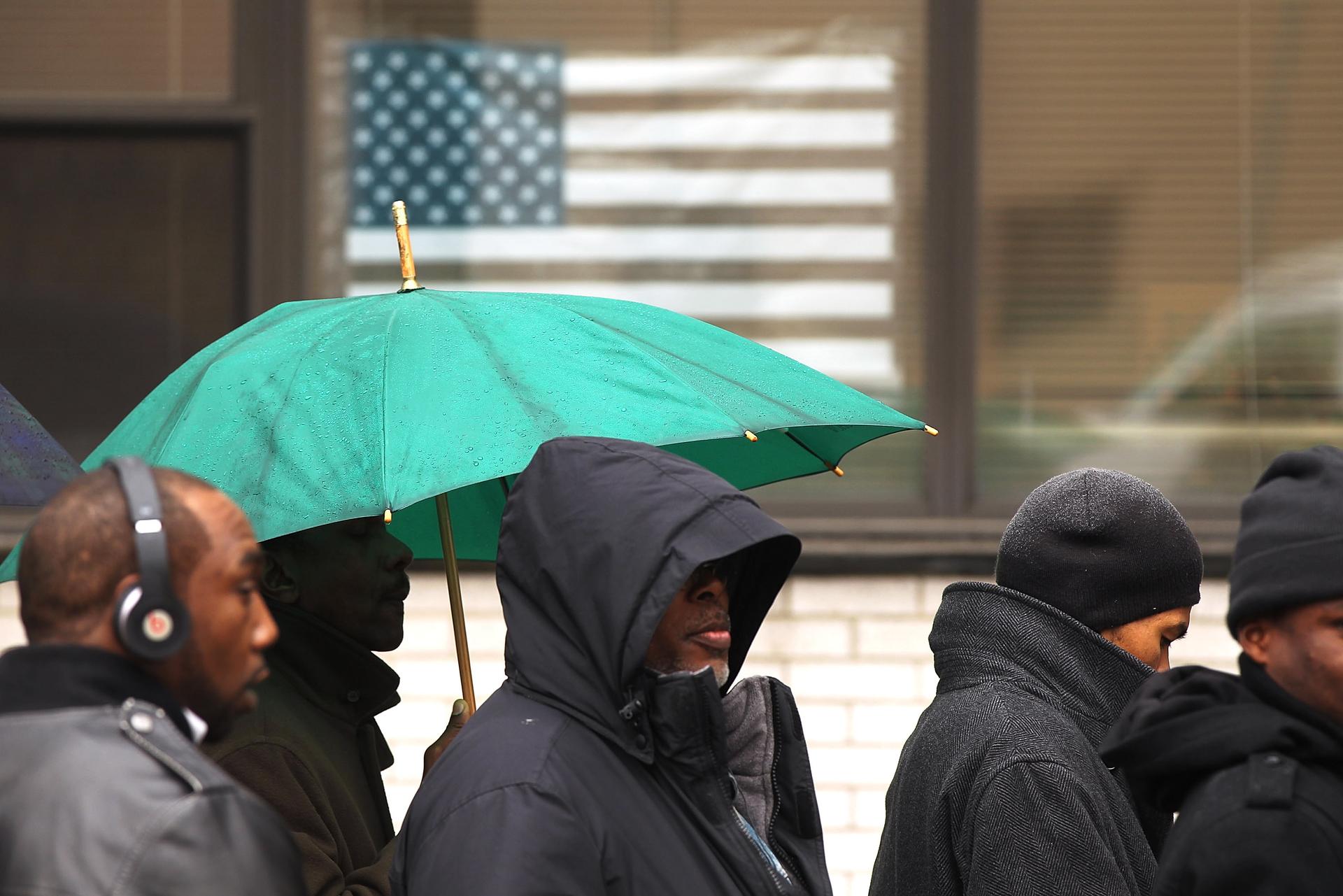US jobs report: economists react
People looking for jobs wait in line to speak with potential employers at the Brooklyn Job Fair on April 13, 2011 in the Brooklyn borough of New York City. Thousands attended the event which featured nearly 80 employers in a variety of professions.
So what do Wall Street's top economists make of today's October jobs report, which showed the US economy produced 80,000 jobs last month while the unemployment rate slid to 9 percent?
"Hiring is not booming, but I don't think there is any sign of recession. The risk of the economy falling into a second recession over the next six to 12 months has been reduced, but we still have a very long way to go," Ryan Sweet, a senior economist at Moody's Analytics told Reuters.
The Wall Street Journal's Real Time Economics blog has done its usual stellar job of rounding up the top reactions, which range from mild optimism, to continued pessimism, to downright confusion.
Here's a quick taste, and you can read the full story here:
Guy LeBas is kicking the ball down the field:
–Throw today’s employment release in the blender with all of the other data released in recent weeks, and you’ve got economic soup. “Mixed” is about the most generous way we can describe current conditions, and October’s payroll growth of 80,000 jobs fits perfectly into this not-so-tasty broth. Once again, the pace of employment expansion isn’t nearly enough to meaningfully reduce the labor market overhang, but it is enough to hold the line for yet another month. –Guy LeBas, Janney Montgomery Scott
Ian Shepherdson is feeling better:
–While this report is not good enough, several key numbers are now moving in the right direction, and the odds of significantly better employment reports over the next few months seem to be improving.–Ian Shepherdson, High Frequency Economics
Harm Bandholz makes this smart point about the relationship between today's jobs report and recent figures on US consumer spending:
—The labor market situation in the US — while still bad — has been slightly better than feared. While the payroll increase in October was somewhat weaker than assumed, the employment numbers for August and September were revised up significantly. These upward corrections help to explain, why consumer spending managed to rise solidly in the third quarter, even as real disposable income reportedly declined 1.7% during the same period. –Harm Bandholz, Unicredit
For more from Thomas Mucha on Twitter: Follow @thomaswmucha
The story you just read is accessible and free to all because thousands of listeners and readers contribute to our nonprofit newsroom. We go deep to bring you the human-centered international reporting that you know you can trust. To do this work and to do it well, we rely on the support of our listeners. If you appreciated our coverage this year, if there was a story that made you pause or a song that moved you, would you consider making a gift to sustain our work through 2024 and beyond?
